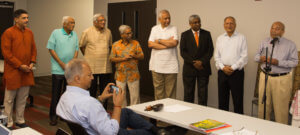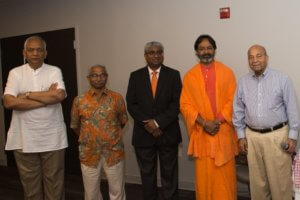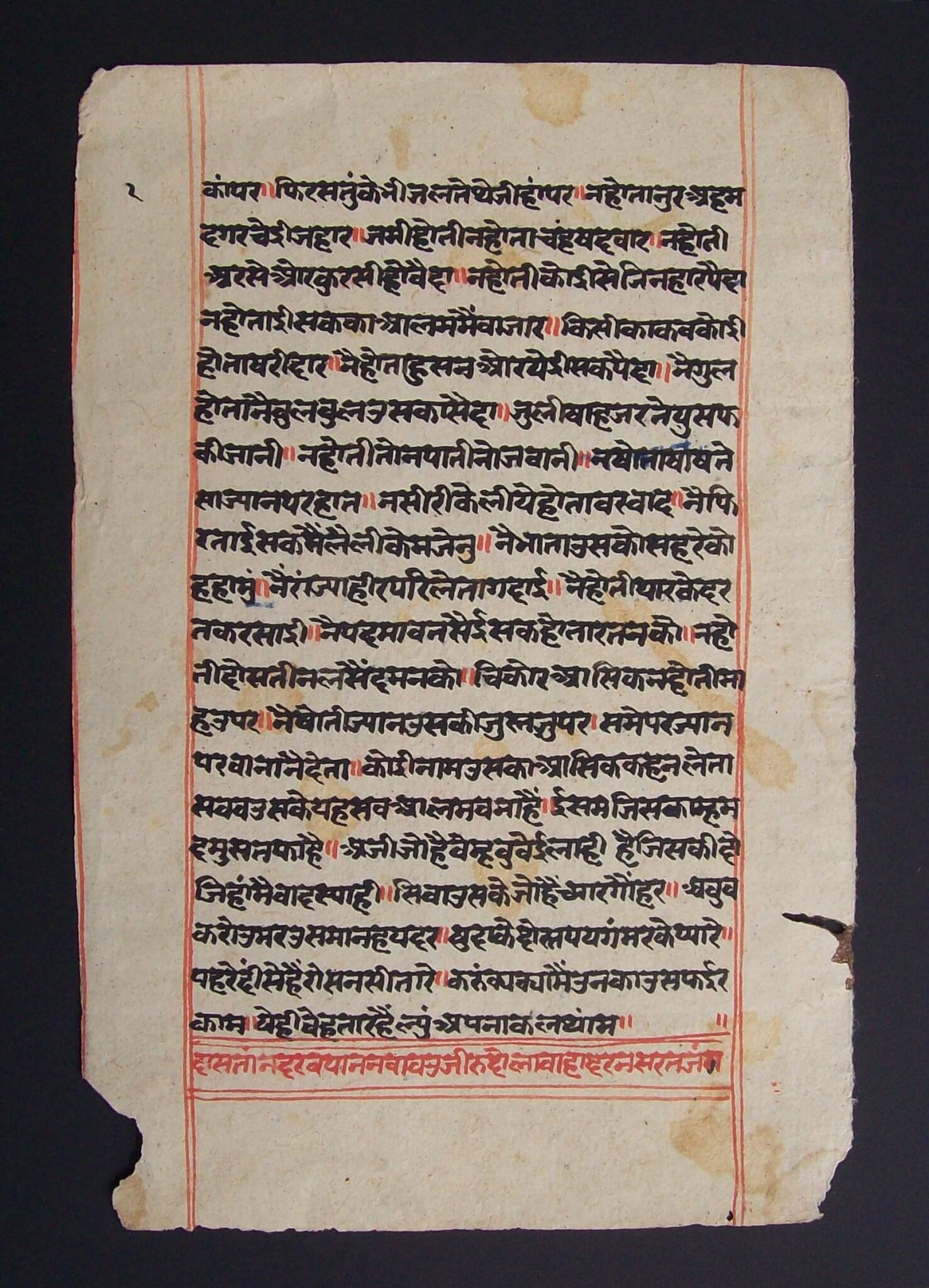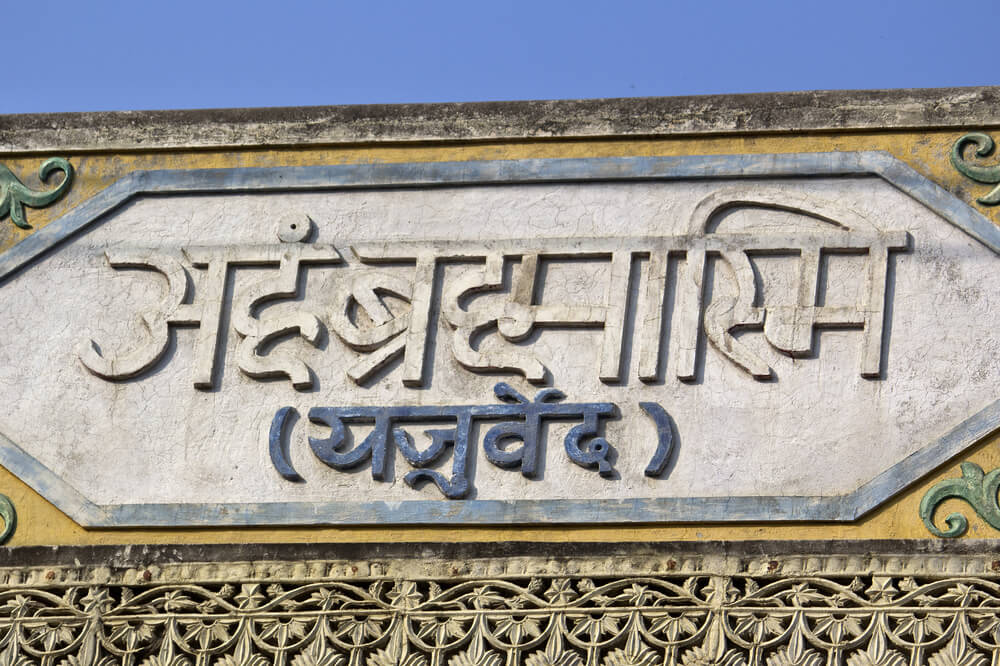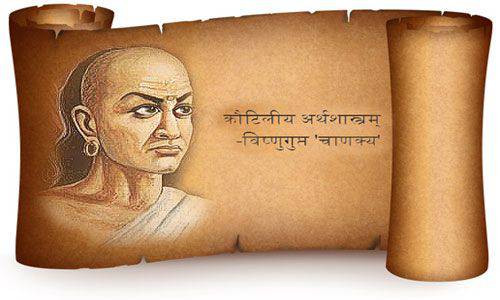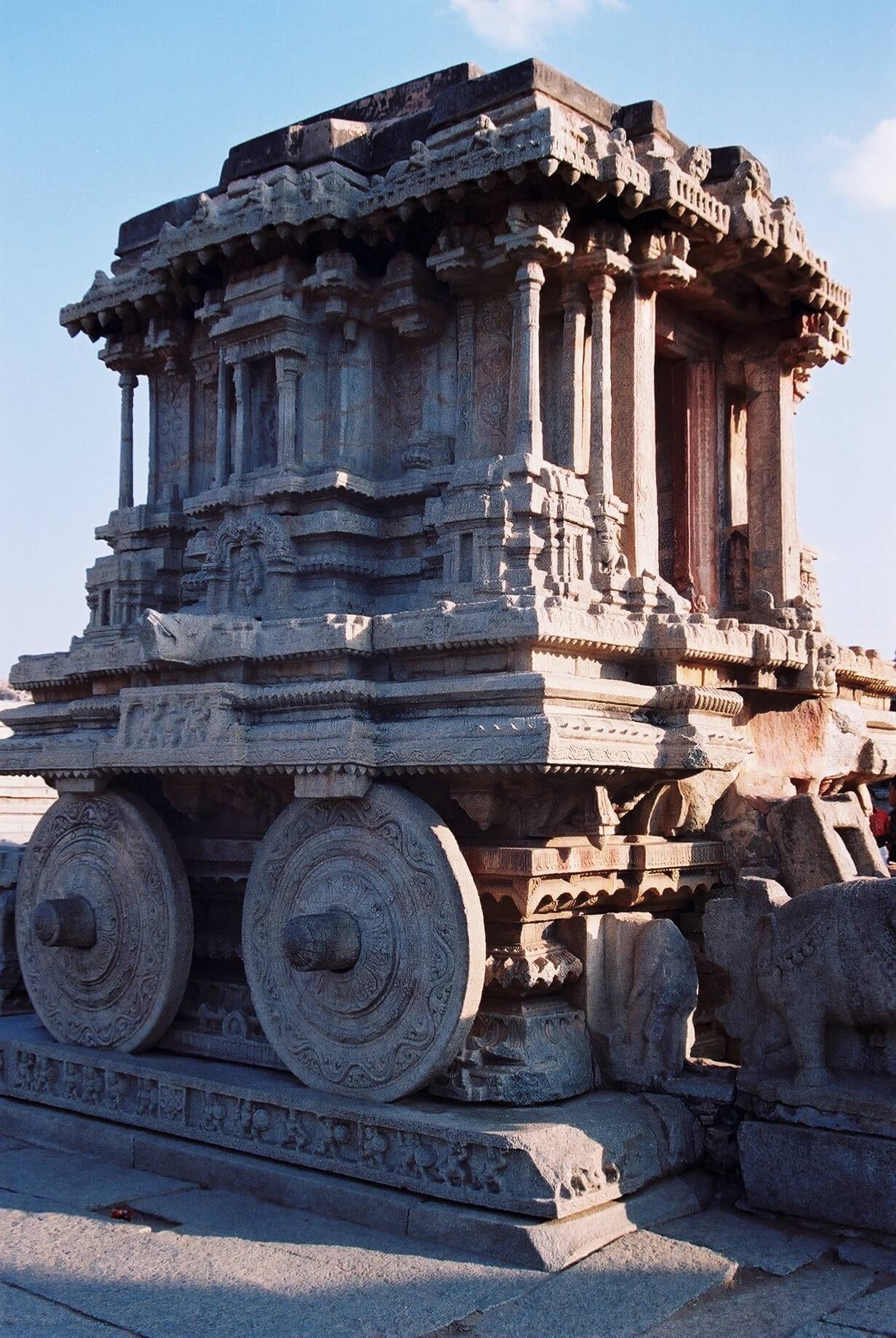Division: Graduate Division
Applied Vedic Science – Advanced (Ayurveda)
Applied Vedic Science Advanced Ayurveda
Course Content:
The wellbeing of the individual and society in the Vedic vision of the universe included both material and spiritual wellbeing. The Vedic vision did not exclude any group or peoples, unlike most ideologies which seek advantage for one group of people at the expense of others, but sought to provide such knowledge that could protect, enhance, empower and enrich life for all peoples who pursued these knowledge systems.
The theory and practice of Ayurveda are one of the vital applied sciences derived from the Vedic vision. Applied Vedic Science Advanced Ayurveda course is the first of a two-part course series that provides the familiarity of the knowledge system of Ayurveda, by exploring its background and key contributors to the different schools of Ayurveda.
This course provides an in-depth appreciation of the science and practice of Ayurveda, through a study of one of the core texts pertaining to the portions suggesting regimen for individuals corresponding to the different seasons. This primary text in Sanskrit will be discussed, along with some of the major commentaries on the source text.
In this course students will be able to:
- Understand the sensibility in the system of Ayurveda that customizes its prescriptions based on factors that impact the health and wellbeing of people.
- Assimilate the role and relevance of Ayurveda as a manual of holistic wellbeing.
Area of Study: Sanskrit Studies
Required / Elective: Elective
Prerequisites:
1) The medium of Instruction is Sanskrit
2) Only currently enrolled Sanskrit master’s certificate students can register for these courses. (MIT-SVS)
3) Admission into Master Program in Sanskrit through MIT-SVS
4) Completed previous MA Sanskrit Course
5) Completion of the Applied Vedic Science – Basic (Ayurveda)
Quarter Offered: Winter Quarter
Applied Vedic Science – Advanced (Jyotisha)
Applied Vedic Science Advanced Jyotish
Course Content:
Applied vedic science advanced jyotish course provides an introduction to basic mathematical operations, the Indian way, through the text named Līlāvatī.
In this course students will be able to:
- Understand the methodology and approach of theorizing and calculating in the Indic system of mathematics.
Area of Study: Sanskrit Studies
Required / Elective: Elective
Prerequisites:
1) The medium of Instruction is Sanskrit
2) Only currently enrolled Sanskrit master’s certificate students can register for these courses. (MIT-SVS)
3) Admission into Master Program in Sanskrit through MIT-SVS
4) Completed previous MA Sanskrit Course – Basic (Jyotisha)
Quarter Offered: Winter Quarter
Applied Vedic Science – Advanced (Vedanta)
Applied Vedic Science – Advanced (Vedanta)
Course Content:
This course introduces the student to the ontological schema proposed by three schools of Vedanta, namely, Advaita, Visistadvaita, and Dvaita through the study of their primers.
In this course students will be able to:
- Understand the various ontological schema with which the same ontological content is presented based on variation of darśanas, all of them rooted in the Vedic tradition.
- Observe the variation in language usage that the different schools of Vedanta adapted in the presentation of their doctrines.
Area of Study: Sanskrit Studies
Required / Elective: Elective
Program: MA in Sanskrit / Masters Certificate in Sanskrit
Quarter Offered: Spring 2024
Applied Vedic Science – Advanced (Yoga)
Applied Vedic Science – Advanced Yoga
Course Content:
This course introduces the portion of the Yogasutras that defines and discusses the systematic means – sadhana – of attaining the most exalted spiritual state and substantiates the process with reasons where necessary.
In this course students will be able to:
- Comprehend the means of attaining an exalted state of spirituality along with the systematic technical definitions of such means
- Logically understand the process presented in the Yogasutras
Area of Study: Sanskrit Studies
Required / Elective: Elective
Prerequisites: Completion of the Applied Vedic Science – Basic (Yoga)
Quarter Offered: Spring Quarter
Applied Vedic Science – Basic (Ayurveda)
Applied Vedic Science – Basic Ayurveda
Course Content:
This course provides a survey of the science and practice of Ayurveda, through an overview of the key texts and contributions in the discipline. The concept of wellbeing, and not merely medication, that is central to Ayurveda is elucidated in the course.
In this course students will be able to:
- Understand the major contributors and their writings and commentaries that built up the applied science and knowledge system of Ayurveda.
- Assimilate the role and relevance of Ayurveda as a science of wellbeing.
- Recognize the different schools of Ayurveda based on their theories.
Area of Study: Sanskrit Studies
Required / Elective: Elective
Prerequisites: Completion of 12 Credit-Hours of Course work in the MA in Sanskrit / Masters Certificate in Sanskrit
Faculty / Instructor: Dr. Gokula Krishna
Start Date:
End Date:
Day:
Time:
Quarter Offered: Fall Quarter
Applied Vedic Science – Basic (Jyotish)
Applied Vedic Science – Basic Jyotish
Course Content:
This course provides a survey of the science and practice of Jyotish, through an overview of the key texts and contributions in the discipline. A primer text in Sanskrit which discusses the categories of this science and how they are interpreted to provide insights related to their influences at different levels is studied in this course.
In this course Basic Jyotish students will be able to:
- Understand the scientific/ mathematic relevance of astronomy as essential for the study of astrology.
- Understand the major contributors and their contributions to scientific thought in the Indic knowledge system.
- Observe how the basic astrological elements have been derived and interpreted in the Jyotish-sastra.
Area of Study: Sanskrit Studies
Required / Elective: Elective
Prerequisites: Completion of 12 Credit-Hours of Course work in the MA in Sanskrit6 limbs / Masters’ Certificate in Sanskrit
Faculty / Instructor: Dr. Dayananda Sharma
Start Date:
End Date:
Day:
Time:
Quarter Offered: Fall Quarter
Applied Vedic Science – Vedanta (Basic)
Applied Vedic Science – Vedanta (Basic) Course Content:
This course provides a survey of the basic philosophical tenets of the different schools of Vedānta and introduces their primary sources. This course also provides the opportunity to study comparatively the respective commentaries of a principal Upaniṣad to aid the student in understanding the philosophical standpoints of these different schools.
In this course students will be able to:
- Understand the role of Vedānta in governing the Indic way of life.
- Understand the convergences and divergences of views among the different schools of Vedānta.
- Observe the multiplicity of interpretations of Vedic literature and the rationale behind such interpretations forming the basis of tenets propounded by the different schools of Vedānta.
Area of Study: Sanskrit Studies
Required / Elective: Required
Prerequisites:
1) The medium of Instruction is Sanskrit
2)Only currently enrolled Sanskrit master’s certificate students can register for these courses. (MIT-SVS)
3) Admission into Master Program in Sanskrit through MIT-SVS
4) Completed previous MA Sanskrit Course
Faculty / Instructor: Dr. Mahabaleswara Bhat
Quarter Offered: Winter Quarter
Applied Vedic Sciences Basic (Yoga)
Applied Vedic Sciences Basic (Yoga)
Course Content:
The wellbeing of the individual and society in the Vedic vision of the universe included both material and spiritual wellbeing. The Vedic vision did not exclude any group or peoples, unlike most ideologies which seek advantage for one group of people at the expense of others, but sought to provide such knowledge that could protect, enhance, empower and enrich life for all peoples who pursued these knowledge systems.
The theory and practice of Yoga are one of the vital applied sciences derived from the Vedic vision. This course is the first of a two-part course series that provides the familiarity of the knowledge system of Yoga, through its primary text in Sanskrit. This course introduces the categories of Yoga with their respective definitions, based on the Yogasutras of Patanjali along with its prominent commentaries.
In this course students will be able to:
- Assimilate the role and relevance of the system of Yoga through a comprehensive understanding of the mental and cognitive categories in the Yoga system
- Comprehend the definitions of the categories according to the Yoga system with elucidations from various commentaries.
Area of Study: Sanskrit Studies
Required / Elective: Elective
Prerequisites: Completion of 12 Credit-Hours of Course work in the MA in Sanskrit / Masters Certificate in Sanskrit
Quarter Offered: Winter Quarter
Arthasastra
Kautilya’s Arthasastra
Written around 300 BC, is a text on statecraft, a book of political realism. It deals with various topics including war and diplomacy, how a king can retain his kingdom and become a conqueror, how to make allies and know the enemies, and how to make treaties. It focuses on elements, what can be termed in modern usage diplomacy, such as the doctrine of a silent war, propaganda, secret agents, how to use women as weapons of war, and how to use religion and superstition to advantage.
According to Kautilya, “power is (possession of) strength” and “strength changes the mind.” More importantly, Kautilya emphasized power to control not only outward behavior but also the thoughts of one’s subjects and enemies. According to him, “one possessed of personal qualities, though ruling over a small territory … conversant with (the science of) politics, does conquer the entire earth, never loses.” Kautilya is the founder of Mandala Theory of foreign policy, which can be termed as a precursor of the theories of political realism and balance of power. Kautilya favored righteous war than greedy and demoniacal wars.
The course will delve into various elements of this insightful text and juxtapose the main ideas in the text with similar theories and approaches in the modern world. The students will be able to draw parallels between the core ideas embedded in this ancient text with many modern ideas.
Aryanism and Indology
Certificate Program on Holistic Yoga for Pain Management
Certificate Program on Holistic Yoga for Pain Management
In this course, students will learn about how to manage musculoskeletal disorders such as arthritis, chronic pain, and osteoporosis using yogic techniques. Students will learn the anatomy/physiology behind each disorder, the medical management process, and the yogic management process of how to heal these disorders. Students will be learning from case studies and a practical approach.
Learning Objectives:
In this course, students will:
- Gain a comprehensive understanding of the musculoskeletal system, physiology of pain, chronic conditions such as low back pain, arthritis, fibromyalgia, spine disorders, and other similar conditions
- Understand the medical management process of pain disorders
- Learn therapeutic yoga techniques for pain conditions
Area of Study:- Yoga Studies
Required/Elective: Required
Program of Study: Certificate Program on Holistic Yoga for Pain Management
Prerequisites: Foundation for Holistic Therapeutic Yoga Teaching
Quarter Offered: TBD
Instructor:- TBD
Contesting Neo-Hinduism
Critical Issues in Hindu Studies
Decolonizing the Hindu Condition
Decolonizing the Hindu Condition
Course Content:
Narratives influence the perception of reality and truth. A distorted narrative or a false narrative produces a distorted perception of reality or truth or “false consciousness.” One of the chief aims of the Postcolonial Hindu Studies concentration is to explore thoroughly how the British studies on India during the colonial era generated a false narrative which distorts the manner in which the Hindu reality is described in the texts of the Hindus. This false narrative, however, has had and continues to have cultural, social, and psychological consequences.
Whereas the course Anticolonialism and Postcolonialism gives a theoretical framework to understand the psychological and sociological consequences of colonization and examines these issues from a universal perspective, this course gets into specifics regarding Hinduism and India. This course has a reciprocal relationship with the course Anticolonialism and Postcolonialism and each course dialectically enhances the understanding of the other. It is not necessary to take one before the other, and both may be taken in either sequence.
Course Learning Objectives:
In this course students will be able to
- learn about the consequences of colonization on Hindu psyche and being
- explore how language, self-image, culture, and politics of the Hindus have been impacted by colonization
- examine the myths and generalizations about the Hindus crafted and perpetuated during the colonial rule that continue to persist in the current day mainstream discourse
- investigate how Hindus themselves perpetuate colonial myths today, without critically examining them or investigating their veracity.
Class Structure
There will be a minimum of 3 contact hours with the faculty every week. The class is structured in a way that promotes discussion, dialogue, and debate based on the study of and reflection on study materials each week. The content discussed in each class and the discussions that follow will continue for about 180 minutes. The Faculty will distribute a detailed syllabus and give a bird’s eye view of the course at its very beginning. >>>HUA<<<
Required/Elective: Elective
Prerequisites: Admission into a Program of Study
Faculty/Instructor: Dr. Kundan Singh
Quarter Offered: Spring 2021
Day: Saturday
Time: 02:00 pm EST – 05:00 pm EST
Start Date: April 10, 2021
End Date: June 19, 2021







